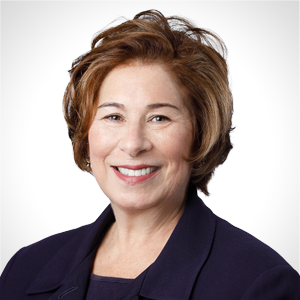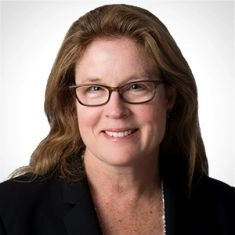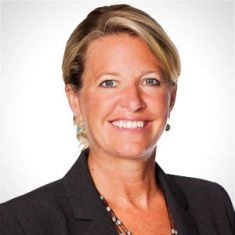Flexible Services
HMA will bring its experience and expertise to assist ACOs and Community Partners (CPs) in building the Flexible Services Program in a way that improves health outcomes for MassHealth members, maximizes the funds available for these services, and meets all MassHealth expectations and requirements. The Flexible Services Program represents a ground-breaking new addition to the investments available under DSRIP programs to address the health-related social needs of MassHealth members. Services and supports under this program may range from housing supports to utility assistance and physical activity to nutritional supports. Services must fall within MassHealth’s definition of “qualified flexible services expenditures.”
We can help ACOs and CPs to stand up this new program, to develop the program plan, as required by MassHealth, and to provide other types of assistance including data capture methodologies related to member screening for flexible services, a selection process to identify and to engage the right Social Services Delivery Entities (SSDEs), business and data-sharing agreements, operational processes, and reporting structures in compliance with MassHealth requirements.
We look forward to meeting the needs of ACOs and CPs, and respond to requests for technical assistance in the following additional areas:
- Education and Training
- Culturally and Disability-Competent Flexible Services
- Return-on-Investment (ROI) Analysis
- Program Evaluation
For more information, contact [email protected]
Meet Our Team
The HMA Flexible Services Team, which is led by Ellen Breslin, includes local and national experts with experience working to support the needs of ACOs, and community organizations as they move into an accountable care environment.
View Our Recent Work
Population Health Investments by Health Plans and Large Provider Organizations
- Project Challenge or Goals: The goals were to assess whether there is a business case for population health investments made by health plans and large provider organizations and, if so, to understand how business interests inform decision-making and affect the outcomes of population health investments
- Project Period: March 2015-March 2016
- Project Description: HMA consultant Ellen Breslin worked with Northeastern University to research and document case studies of health plans and provider organizations engaged in population health investment.
- Project Achievements: The report presented findings from five in-depth site visits to the following organizations: Kaiser Permanente, Molina Healthcare of New Mexico, Montefiore Health System, Nemours Children’s Health System, and University of Pittsburgh Medical Center Health System and UPMC for You. Among the findings were: 1) business interests shape the magnitude, scope, and duration of population health investments; 2) health plans and large provider organizations are willing to engage in promising innovations, but the capacity of traditional value-based purchasing strategies to support these investments is uncertain; 3) achieving improvement in the health of populations in a geographic area is likely to require building shared strategies across plans and provider systems, as well as other partners; and 4) technical support and strategic policy analyses are needed to further clarify and facilitate future opportunities. The report is available at the following link: https://www.northeastern.edu/iuhrp/wp-content/uploads/2016/05/PopHealthBusinessCaseFullRpt-5-1.pdf
Health Disparities and Cost Framework for Accounting for SDOH in Medicaid Populations
- Project Challenge or Goals: The need for a framework for analyzing the demographic, medical, and social factors affecting Medicaid populations, to enable identification of health disparities and populations requiring special interventions and strategies
- Project Period: 2016-2017
- Project Description: HMA was hired by MN DHS to develop a framework for analyzing health disparities in the Medicaid population while accounting for SDOH factors such as poverty, housing status, mental illness, substance use disorders, prior involvement with the correctional department, and child risk factors including parental education, employment, and behavioral health diagnoses.
- Project Achievements: A report to the legislature that identified Medicaid populations with the greatest health disparities that account for their social risk factors. HMA also produced a large body of information and evidence on the statistical relationships between SDOH and health outcomes and costs
New York State CBO Planning Grant (New York City and Long Island/Hudson Valley)
- Project Challenge or Goals: Support a diverse range of small, non-Medicaid billing CBOs to increase their capacity and infrastructure to allow them to participate actively in New York State (NYS) healthcare reform, including DSRIP
- Project Period: 2016-present
- Project Description: HMA hired as a consultant under two of New York State’s three regional CBO Planning Grants. The CBO Planning Grants are intended to support the engagement of CBOs addressing the social determinants of health within a transformed healthcare system. HMA is the consultant for Communities Together for Health Equity (CTHE), a consortium led by the Arthur Ashe Institute of Urban Health, which is entering its final phase of the one-year grant process, and the Long Island and Hudson Valley (LI-HV) Consortium, led by the Health and Welfare Council of Long Island, which is just beginning its one-year grant period. HMA supported each consortium to obtain the grants, each of which total $2.5 million and are intended to establish networks of CBOs trained and organized to effectively contract for service delivery. Consortium goals focus on several goals including recruiting non-profit CBOs who are addressing the SDOH and have annual operating budgets of less than $5 million, and providing training and TA to inform individual and collective planning
- Project Achievements: Provided training and technical assistance related to NYS’ delivery system reform efforts to 75 plus CBOs, including DSRIP. Supported CBOs to develop collective infrastructure (e.g., a governing Steering Committee, local borough-specific Hubs, topic-specific Workgroups, and an online Portal on which CBOs can communicate, receive training, and share events).





